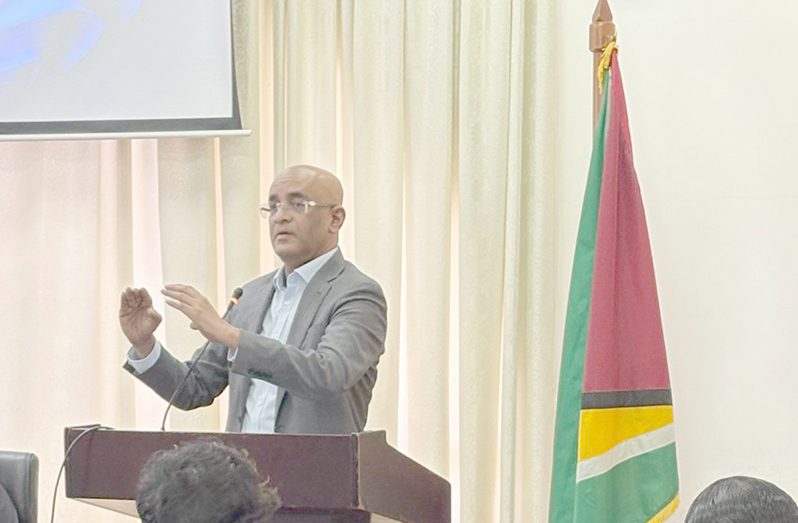— VP Jagdeo says
BEFORE mid-2026, Guyanese citizens will be issued new biometric ID cards designed to distinguish them from foreigners and provide additional benefits, Vice President, Dr. Bharrat Jagdeo announced on Friday.
Speaking during an engagement with youths at the Arthur Chung Conference Centre (ACCC), Dr Jagdeo explained that the initiative forms part of the government’s broader push to modernise and secure national services.
“Before mid-next year, every Guyanese citizen will get an ID card with biometrics on it that would allow them some preferences. Every foreigner who lives here will have a different card, but in another colour. Our people will get some additional benefits,” the Vice President said.
The biometric cards will not only offer citizens preferential treatment in certain areas, but will also strengthen border control by monitoring who is entering the country.
Dr Jagdeo noted that the cards will be important for daily transactions, including opening bank accounts, and are a critical part of Guyana’s wider digital transformation agenda.
In Guyana’s case, the country has already outlined plans to digitise its healthcare system and has launched the Guyana Digital Initiative aimed at moulding tech experts. Aside from this, Guyana’s first-of-its-kind digital school will serve the Caribbean.
These initiatives, the Guyanese leader explained, are all aimed at ensuring that Guyana remains relevant and competitive on the global stage.
Back in 2024, Dr Jagdeo had said that this system will allow for pre-screening of passengers, and the use of automated gates, where travellers can simply swipe their identification documents for expedited entry.
He, however, noted that this system would also easily flag discrepancies.
Dr Jagdeo pointed out that upon entry and screening, all necessary information will be recorded by the Guyana Revenue Authority (GRA).
“When you enter into the country, immediately that record goes to a government central database that will be able to track you if you come in on a short-term visa. So, if you overstay, you get flagged; if you come in on a particular visa, you can’t get a work permit,” Dr Jagdeo had explained.
He’d added: “We can know who is coming into our country. We can keep our people secure, and we can flag undesirables before they come home.”
Electronic gates (e-gates) have been installed at the Cheddi Jagan International Airport (CJIA).
These innovative gates revolutionise the travel process, offering passengers faster check-in times, smoother security screenings and a more convenient overall experience.




.jpg)









